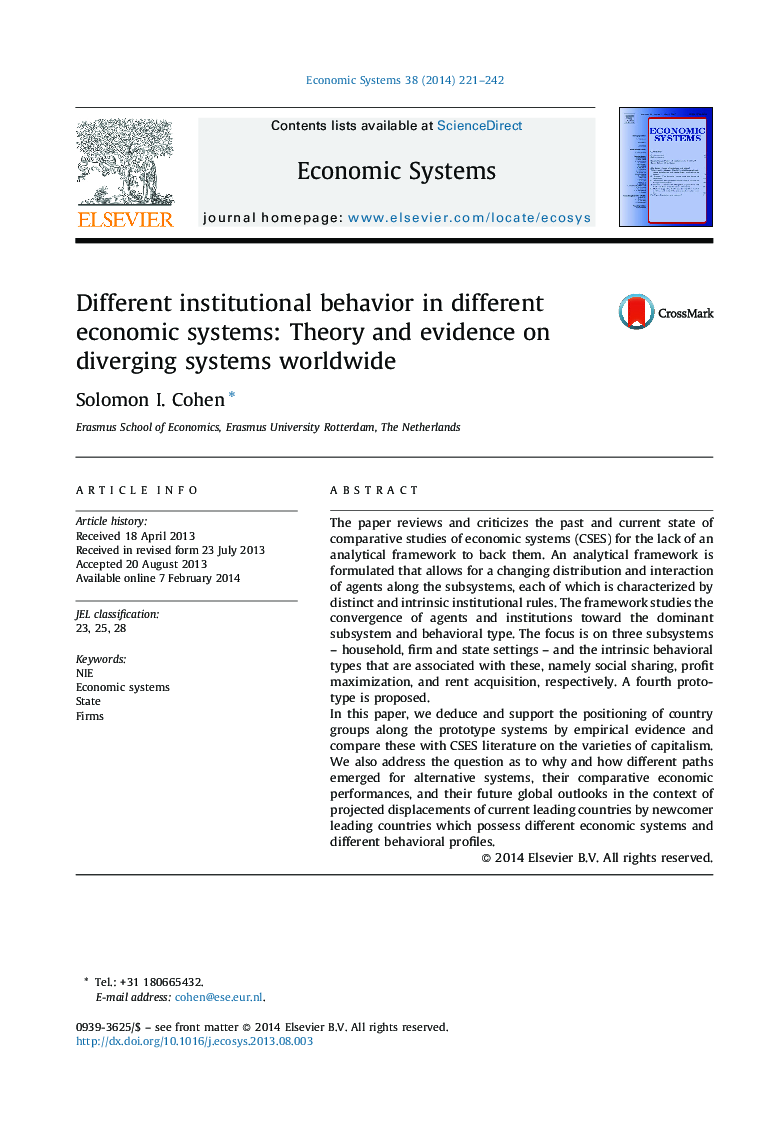| Article ID | Journal | Published Year | Pages | File Type |
|---|---|---|---|---|
| 5056317 | Economic Systems | 2014 | 22 Pages |
â¢Three subsystems: households, firms, state settings. Their typical behavioral motives: social sharing, profit maximization, rent securement, respectively.â¢Agents interacting and moving between settings result in dominant subsystems, leading to three distinct prototypes of economic systems worldwide.â¢A fourth prototype is the multi-polar development system that shows no dominant subsystem: typical of China, India, Indonesia, Bangladesh, and countries alike.â¢Paper answers why and how different systemic paths emerged, their comparative economic performances, future global outlooks and implications for global governance.
The paper reviews and criticizes the past and current state of comparative studies of economic systems (CSES) for the lack of an analytical framework to back them. An analytical framework is formulated that allows for a changing distribution and interaction of agents along the subsystems, each of which is characterized by distinct and intrinsic institutional rules. The framework studies the convergence of agents and institutions toward the dominant subsystem and behavioral type. The focus is on three subsystems - household, firm and state settings - and the intrinsic behavioral types that are associated with these, namely social sharing, profit maximization, and rent acquisition, respectively. A fourth prototype is proposed.In this paper, we deduce and support the positioning of country groups along the prototype systems by empirical evidence and compare these with CSES literature on the varieties of capitalism. We also address the question as to why and how different paths emerged for alternative systems, their comparative economic performances, and their future global outlooks in the context of projected displacements of current leading countries by newcomer leading countries which possess different economic systems and different behavioral profiles.
